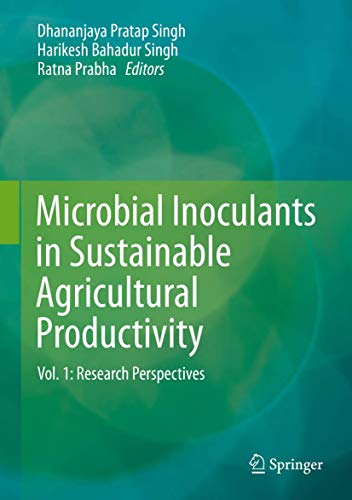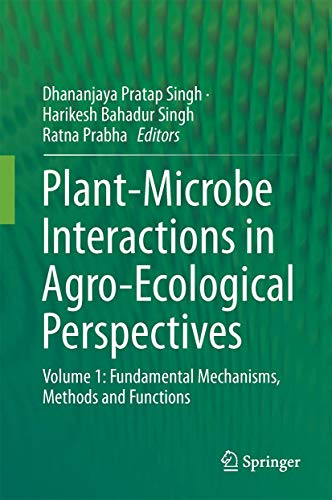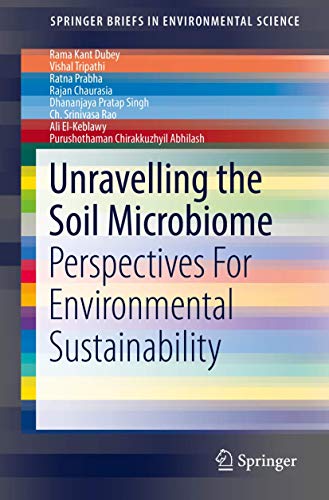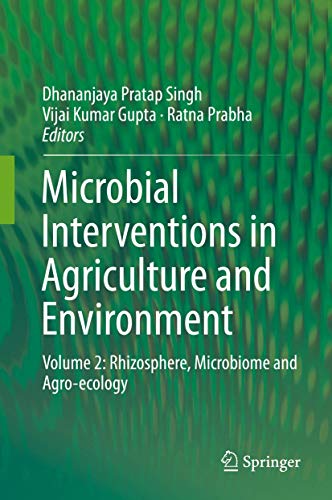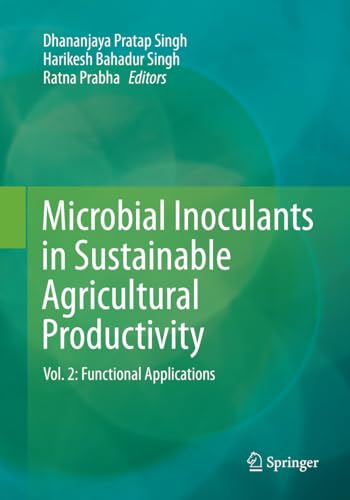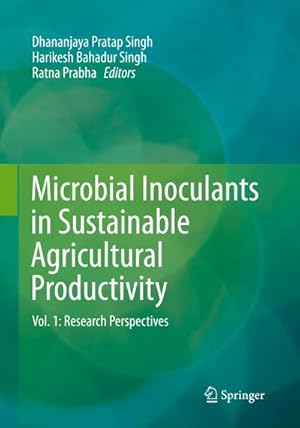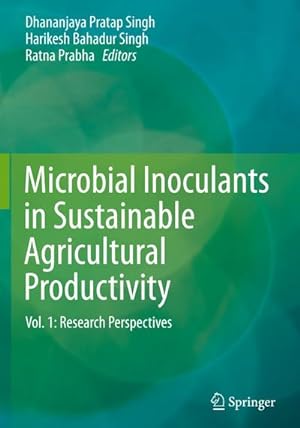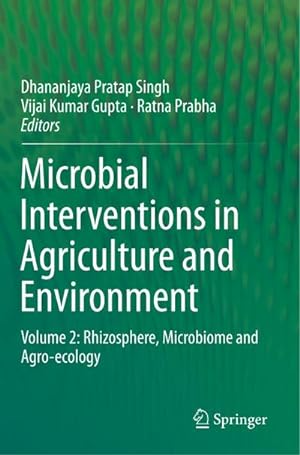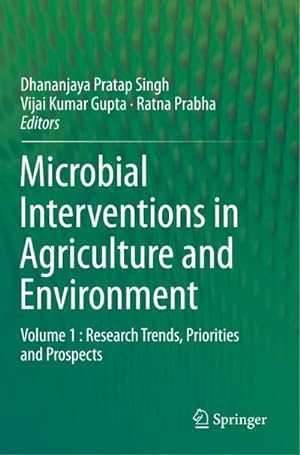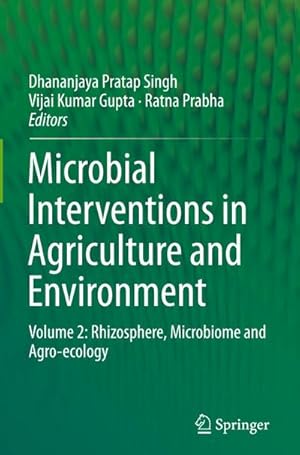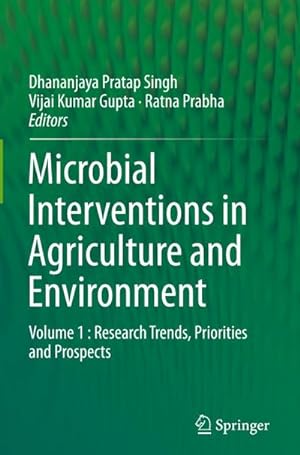singh dhananjaya pratap (42 Ergebnisse)
Suchfilter
Produktart
- Alle Product Types
- Bücher (42)
- Magazine & Zeitschriften (Keine weiteren Ergebnisse entsprechen dieser Verfeinerung)
- Comics (Keine weiteren Ergebnisse entsprechen dieser Verfeinerung)
- Noten (Keine weiteren Ergebnisse entsprechen dieser Verfeinerung)
- Kunst, Grafik & Poster (Keine weiteren Ergebnisse entsprechen dieser Verfeinerung)
- Fotografien (Keine weiteren Ergebnisse entsprechen dieser Verfeinerung)
- Karten (Keine weiteren Ergebnisse entsprechen dieser Verfeinerung)
- Manuskripte & Papierantiquitäten (Keine weiteren Ergebnisse entsprechen dieser Verfeinerung)
Zustand Mehr dazu
- Neu (37)
- Wie Neu, Sehr Gut oder Gut Bis Sehr Gut (Keine weiteren Ergebnisse entsprechen dieser Verfeinerung)
- Gut oder Befriedigend (Keine weiteren Ergebnisse entsprechen dieser Verfeinerung)
- Ausreichend oder Schlecht (Keine weiteren Ergebnisse entsprechen dieser Verfeinerung)
- Wie beschrieben (5)
Weitere Eigenschaften
- Erstausgabe (1)
- Signiert (Keine weiteren Ergebnisse entsprechen dieser Verfeinerung)
- Schutzumschlag (Keine weiteren Ergebnisse entsprechen dieser Verfeinerung)
- Angebotsfoto (33)
Sprache (1)
Gratisversand
- Kostenloser Versand nach USA (Keine weiteren Ergebnisse entsprechen dieser Verfeinerung)
Land des Verkäufers
Verkäuferbewertung
-
Microbial Inculants in Sustainable Agricultural Productivity. Vol. 1: Research Perspectives.
Anbieter: Universitätsbuchhandlung Herta Hold GmbH, Berlin, Deutschland
XVIII, 343 p. Hardcover. Versand aus Deutschland / We dispatch from Germany via Air Mail. Einband bestoßen, daher Mängelexemplar gestempelt, sonst sehr guter Zustand. Imperfect copy due to slightly bumped cover, apart from this in very good condition. Stamped. Sprache: Englisch.
-
Microbial Interventions in Agriculture and Environment. Volume 2: Rhizosphere, Microbiome and Agro-ecology.
Anbieter: Universitätsbuchhandlung Herta Hold GmbH, Berlin, Deutschland
XIV, 573 p. Softcover. Versand aus Deutschland / We dispatch from Germany via Air Mail. Einband bestoßen, daher Mängelexemplar gestempelt, sonst sehr guter Zustand. Imperfect copy due to slightly bumped cover, apart from this in very good condition. Stamped. Sprache: Englisch.
-
Plant-Microbe Interactions in Agro-Ecological Perspectives. Volume 1: Fundamental Mechanisms, Methods and Functions.
Anbieter: Universitätsbuchhandlung Herta Hold GmbH, Berlin, Deutschland
23.5 cm x 15.5 cm. XXII, 657 p. Hardcover. Einband bestoßen, daher Mängelexemplar gestempelt, sonst sehr guter Zustand. Imperfect copy due to slightly bumped cover, apart from this in very good condition. Stamped. Sprache: Englisch.
-
Unravelling the Soil Microbiome: Perspectives For Environmental Sustainability
Anbieter: Revaluation Books, Exeter, Vereinigtes Königreich
EUR 69,63
EUR 11,35 für den Versand von Vereinigtes Königreich nach USAAnzahl: 1 verfügbar
In den WarenkorbPaperback. Zustand: Brand New. 104 pages. 9.25x6.10x0.32 inches. In Stock.
-
Microbial Interventions in Agriculture and Environment: Volume 2: Rhizosphere, Microbiome and Agro-ecology
Anbieter: SpringBooks, Berlin, Deutschland
Erstausgabe
Hardcover. Zustand: Very Good. 1. Auflage. unread, some shelfwear.
-
Microbial Inoculants in Sustainable Agricultural Productivity: Vol. 2: Functional Applications
Anbieter: SpringBooks, Berlin, Deutschland
Softcover. Zustand: Very Good. Unread, some shelfwear. Immediately dispatched from Germany.
-
Microbial Inoculants in Sustainable Agricultural Productivity 2016, Vol. 1 : Research Perspectives
Verlag: Springer (India) Private Limited, 2016
ISBN 10: 8132226453 ISBN 13: 9788132226451
Sprache: Englisch
Anbieter: Majestic Books, Hounslow, Vereinigtes Königreich
EUR 133,02
EUR 7,38 für den Versand von Vereinigtes Königreich nach USAAnzahl: 1 verfügbar
In den WarenkorbZustand: New. pp. 345.
-
Microbial Inoculants in Sustainable Agricultural Productivity | Vol. 1: Research Perspectives
Anbieter: preigu, Osnabrück, Deutschland
Taschenbuch. Zustand: Neu. Microbial Inoculants in Sustainable Agricultural Productivity | Vol. 1: Research Perspectives | Dhananjaya Pratap Singh (u. a.) | Taschenbuch | XVIII | Englisch | 2018 | Springer | EAN 9788132238072 | Verantwortliche Person für die EU: Springer Verlag GmbH, Tiergartenstr. 17, 69121 Heidelberg, juergen[dot]hartmann[at]springer[dot]com | Anbieter: preigu.
-
Microbial Interventions in Agriculture and Environment | Volume 3: Soil and Crop Health Management
Anbieter: preigu, Osnabrück, Deutschland
Taschenbuch. Zustand: Neu. Microbial Interventions in Agriculture and Environment | Volume 3: Soil and Crop Health Management | Ratna Prabha (u. a.) | Taschenbuch | xi | Englisch | 2020 | Springer Singapore | EAN 9789813290860 | Verantwortliche Person für die EU: Springer Verlag GmbH, Tiergartenstr. 17, 69121 Heidelberg, juergen[dot]hartmann[at]springer[dot]com | Anbieter: preigu.
-
Microbial Interventions in Agriculture and Environment
Verlag: Springer Nature Singapore, Springer Nature Singapore Nov 2019, 2019
ISBN 10: 9813290838 ISBN 13: 9789813290839
Sprache: Englisch
Anbieter: buchversandmimpf2000, Emtmannsberg, BAYE, Deutschland
Buch. Zustand: Neu. Neuware -Microbial communities and their multi-functionalities play a crucial role in the management of soil and plant health, and thus help in managing agro-ecology, the environment and agriculture. Microorganisms are key players in N-fixation, nutrient acquisition, carbon sequestration, plant growth promotion, pathogen suppression, induced systemic resistance and tolerance against stresses, and these parameters are used as indicators of improved crop productivity and sustainable soil health. Beneficial belowground microbial interactions in the rhizosphere help plants combat abiotic challenges in the unfavourable environmental conditions of native soils. These microorganisms and their products offer potential solutions for agriculture in problematic areas since they are able to degrade xenobiotic compounds, pesticides and toxic chemicals and help remediate heavy metals in the rhizosphere and so make deteriorated soils suitable for crop production.This book compiles the latest research on the role of microbes in the rhizosphere and agro-ecology, covering interaction mechanisms, microbe-mediated crop production, plant and soil health management, food and nutrition, nutrient recycling, land reclamation, clean water systems, agro-waste management, biodegradation, bioremediation, biomass and bioenergy, sanitation and rural livelihood security. It is a comprehensive reference resource for agricultural activists, policymakers, environmentalists and advisors working for governments, non-governmental organizations and industries, helping them update their knowledge of this important, but often neglected, research area.Springer Verlag GmbH, Tiergartenstr. 17, 69121 Heidelberg 504 pp. Englisch.
-
Microbial Inoculants in Sustainable Agricultural Productivity
Verlag: Springer India, Springer India Mär 2016, 2016
ISBN 10: 8132226453 ISBN 13: 9788132226451
Sprache: Englisch
Anbieter: buchversandmimpf2000, Emtmannsberg, BAYE, Deutschland
Buch. Zustand: Neu. Neuware -How to achieve sustainable agricultural production without compromising environmental quality, agro-ecosystem function and biodiversity is a serious consideration in current agricultural practices. Farming systems¿ growing dependency on chemical inputs (fertilizers, pesticides, nutrients etc.) poses serious threats with regard to crop productivity, soil fertility, the nutritional value of farm produce, management of pests and diseases, agro-ecosystem well-being, and health issues for humans and animals. At the same time, microbial inoculants in the form of biofertilizers, plant growth promoters, biopesticides, soil health managers, etc. have gained considerable attention among researchers, agriculturists, farmers and policy makers.The first volume of the book Microbial Inoculants in Sustainable Agricultural Productivity - Research Perspectives highlights the efforts of global experts with regard to various aspects of microbial inoculants. Emphasis is placed on recent advances in microbiological techniques for the isolation, characterization, identification and evaluation of functional properties using biochemical and molecular tools. The taxonomic characterization of agriculturally important microorganisms is documented, along with their applications in field conditions.The book exploresthe identification, characterization and diversity analysis of endophytic microorganisms in various crops including legumes/ non-legumes, as well as the assessment of their beneficial impacts in the context of promotingplant growth. Moreover, it provides essential updates onthe diversity and role of plant growth promoting rhizobacteria (PGPR) and arbuscular mycorrhizal mycorrhizal fungi (AMF). Further chaptersexamine in detailbiopesticides, thehigh-density cultivation of bioinoculants in submerged culture, seed biopriming strategies for abiotic and biotic stress tolerance, andPGPR as abio-control agent. Given its content,the bookoffers a valuable resource for researchers involved in research and development concerningPGPR, biopesticides and microbial inoculants.Springer Verlag GmbH, Tiergartenstr. 17, 69121 Heidelberg 364 pp. Englisch.
-
Microbial Interventions in Agriculture and Environment
Verlag: Springer Nature Singapore, Springer Nature Singapore Nov 2020, 2020
ISBN 10: 9813290862 ISBN 13: 9789813290860
Sprache: Englisch
Anbieter: buchversandmimpf2000, Emtmannsberg, BAYE, Deutschland
Taschenbuch. Zustand: Neu. Neuware -Microbial communities and their multi-functionalities play a crucial role in the management of soil and plant health, and thus help in managing agro-ecology, the environment and agriculture. Microorganisms are key players in N-fixation, nutrient acquisition, carbon sequestration, plant growth promotion, pathogen suppression, induced systemic resistance and tolerance against stresses, and these parameters are used as indicators of improved crop productivity and sustainable soil health. Beneficial belowground microbial interactions in the rhizosphere help plants combat abiotic challenges in the unfavourable environmental conditions of native soils. These microorganisms and their products offer potential solutions for agriculture in problematic areas since they are able to degrade xenobiotic compounds, pesticides and toxic chemicals and help remediate heavy metals in the rhizosphere and so make deteriorated soils suitable for crop production.This book compiles the latest research on the role of microbes in the rhizosphere and agro-ecology, covering interaction mechanisms, microbe-mediated crop production, plant and soil health management, food and nutrition, nutrient recycling, land reclamation, clean water systems, agro-waste management, biodegradation, bioremediation, biomass and bioenergy, sanitation and rural livelihood security. It is a comprehensive reference resource for agricultural activists, policymakers, environmentalists and advisors working for governments, non-governmental organizations and industries, helping them update their knowledge of this important, but often neglected, research area.Springer Verlag GmbH, Tiergartenstr. 17, 69121 Heidelberg 504 pp. Englisch.
-
Microbial Interventions in Agriculture and Environment : Volume 3: Soil and Crop Health Management
Verlag: Springer Nature Singapore, Springer Nature Singapore, 2020
ISBN 10: 9813290862 ISBN 13: 9789813290860
Sprache: Englisch
Anbieter: AHA-BUCH GmbH, Einbeck, Deutschland
Taschenbuch. Zustand: Neu. Druck auf Anfrage Neuware - Printed after ordering - Microbial communities and their multi-functionalities play a crucial role in the management of soil and plant health, and thus help in managing agro-ecology, the environment and agriculture. Microorganisms are key players in N-fixation, nutrient acquisition, carbon sequestration, plant growth promotion, pathogen suppression, induced systemic resistance and tolerance against stresses, and these parameters are used as indicators of improved crop productivity and sustainable soil health. Beneficial belowground microbial interactions in the rhizosphere help plants combat abiotic challenges in the unfavourable environmental conditions of native soils. These microorganisms and their products offer potential solutions for agriculture in problematic areas since they are able to degrade xenobiotic compounds, pesticides and toxic chemicals and help remediate heavy metals in the rhizosphere and so make deteriorated soils suitable for crop production. This book compiles the latest research on the role of microbes in the rhizosphere and agro-ecology, covering interaction mechanisms, microbe-mediated crop production, plant and soil health management, food and nutrition,nutrient recycling, land reclamation, clean water systems, agro-waste management, biodegradation, bioremediation, biomass and bioenergy, sanitation and rural livelihood security. It is a comprehensive reference resource for agricultural activists, policymakers, environmentalists and advisors working for governments, non-governmental organizations and industries, helping them update their knowledge of this important, but often neglected, research area.
-
Microbial Inoculants in Sustainable Agricultural Productivity : Vol. 1: Research Perspectives
Anbieter: AHA-BUCH GmbH, Einbeck, Deutschland
Taschenbuch. Zustand: Neu. Druck auf Anfrage Neuware - Printed after ordering - How to achieve sustainable agricultural production without compromising environmental quality, agro-ecosystem function and biodiversity is a serious consideration in current agricultural practices. Farming systems' growing dependency on chemical inputs (fertilizers, pesticides, nutrients etc.) poses serious threats with regard to crop productivity, soil fertility, the nutritional value of farm produce, management of pests and diseases, agro-ecosystem well-being, and health issues for humans and animals. At the same time, microbial inoculants in the form of biofertilizers, plant growth promoters, biopesticides, soil health managers, etc. have gained considerable attention among researchers, agriculturists, farmers and policy makers.The first volume of the book Microbial Inoculants in Sustainable Agricultural Productivity - Research Perspectives highlights the efforts of global experts with regard to various aspects of microbial inoculants. Emphasis is placed on recent advances in microbiological techniques for the isolation, characterization, identification and evaluation of functional properties using biochemical and molecular tools. The taxonomic characterization of agriculturally important microorganisms is documented, alongwith their applications in field conditions.The book exploresthe identification, characterization and diversity analysis of endophytic microorganisms in various crops including legumes/ non-legumes, as well as the assessment of their beneficial impacts in the context of promotingplant growth. Moreover, it provides essential updates onthe diversity and role of plant growth promoting rhizobacteria (PGPR) and arbuscular mycorrhizal mycorrhizal fungi (AMF). Further chaptersexamine in detailbiopesticides, thehigh-density cultivation of bioinoculants in submerged culture, seed biopriming strategies for abiotic and biotic stress tolerance, andPGPR as abio-control agent. Given its content,the bookoffers a valuable resource for researchers involved in research and development concerningPGPR, biopesticides and microbial inoculants.
-
Microbial Interventions in Agriculture and Environment : Volume 3: Soil and Crop Health Management
Verlag: Springer Nature Singapore, Springer Nature Singapore, 2019
ISBN 10: 9813290838 ISBN 13: 9789813290839
Sprache: Englisch
Anbieter: AHA-BUCH GmbH, Einbeck, Deutschland
Buch. Zustand: Neu. Druck auf Anfrage Neuware - Printed after ordering - Microbial communities and their multi-functionalities play a crucial role in the management of soil and plant health, and thus help in managing agro-ecology, the environment and agriculture. Microorganisms are key players in N-fixation, nutrient acquisition, carbon sequestration, plant growth promotion, pathogen suppression, induced systemic resistance and tolerance against stresses, and these parameters are used as indicators of improved crop productivity and sustainable soil health. Beneficial belowground microbial interactions in the rhizosphere help plants combat abiotic challenges in the unfavourable environmental conditions of native soils. These microorganisms and their products offer potential solutions for agriculture in problematic areas since they are able to degrade xenobiotic compounds, pesticides and toxic chemicals and help remediate heavy metals in the rhizosphere and so make deteriorated soils suitable for crop production. This book compiles the latest research on the role of microbes in the rhizosphere and agro-ecology, covering interaction mechanisms, microbe-mediated crop production, plant and soil health management, food and nutrition,nutrient recycling, land reclamation, clean water systems, agro-waste management, biodegradation, bioremediation, biomass and bioenergy, sanitation and rural livelihood security. It is a comprehensive reference resource for agricultural activists, policymakers, environmentalists and advisors working for governments, non-governmental organizations and industries, helping them update their knowledge of this important, but often neglected, research area.
-
Microbial Inoculants in Sustainable Agricultural Productivity : Vol. 1: Research Perspectives
Anbieter: AHA-BUCH GmbH, Einbeck, Deutschland
Buch. Zustand: Neu. Druck auf Anfrage Neuware - Printed after ordering - How to achieve sustainable agricultural production without compromising environmental quality, agro-ecosystem function and biodiversity is a serious consideration in current agricultural practices. Farming systems' growing dependency on chemical inputs (fertilizers, pesticides, nutrients etc.) poses serious threats with regard to crop productivity, soil fertility, the nutritional value of farm produce, management of pests and diseases, agro-ecosystem well-being, and health issues for humans and animals. At the same time, microbial inoculants in the form of biofertilizers, plant growth promoters, biopesticides, soil health managers, etc. have gained considerable attention among researchers, agriculturists, farmers and policy makers.The first volume of the book Microbial Inoculants in Sustainable Agricultural Productivity - Research Perspectives highlights the efforts of global experts with regard to various aspects of microbial inoculants. Emphasis is placed on recent advances in microbiological techniques for the isolation, characterization, identification and evaluation of functional properties using biochemical and molecular tools. The taxonomic characterization of agriculturally important microorganisms is documented, alongwith their applications in field conditions.The book exploresthe identification, characterization and diversity analysis of endophytic microorganisms in various crops including legumes/ non-legumes, as well as the assessment of their beneficial impacts in the context of promotingplant growth. Moreover, it provides essential updates onthe diversity and role of plant growth promoting rhizobacteria (PGPR) and arbuscular mycorrhizal mycorrhizal fungi (AMF). Further chaptersexamine in detailbiopesticides, thehigh-density cultivation of bioinoculants in submerged culture, seed biopriming strategies for abiotic and biotic stress tolerance, andPGPR as abio-control agent. Given its content,the bookoffers a valuable resource for researchers involved in research and development concerningPGPR, biopesticides and microbial inoculants.
-
Microbial Interventions in Agriculture and Environment | Volume 2: Rhizosphere, Microbiome and Agro-ecology
Anbieter: preigu, Osnabrück, Deutschland
Taschenbuch. Zustand: Neu. Microbial Interventions in Agriculture and Environment | Volume 2: Rhizosphere, Microbiome and Agro-ecology | Dhananjaya Pratap Singh (u. a.) | Taschenbuch | xiv | Englisch | 2020 | Springer Singapore | EAN 9789811383854 | Verantwortliche Person für die EU: Springer Verlag GmbH, Tiergartenstr. 17, 69121 Heidelberg, juergen[dot]hartmann[at]springer[dot]com | Anbieter: preigu.
-
Microbial Interventions in Agriculture and Environment | Volume 1 : Research Trends, Priorities and Prospects
Anbieter: preigu, Osnabrück, Deutschland
Taschenbuch. Zustand: Neu. Microbial Interventions in Agriculture and Environment | Volume 1 : Research Trends, Priorities and Prospects | Dhananjaya Pratap Singh (u. a.) | Taschenbuch | xix | Englisch | 2020 | Springer Singapore | EAN 9789811383939 | Verantwortliche Person für die EU: Springer Verlag GmbH, Tiergartenstr. 17, 69121 Heidelberg, juergen[dot]hartmann[at]springer[dot]com | Anbieter: preigu.
-
Microbial Inoculants in Sustainable Agricultural Productivity | Vol. 2: Functional Applications
Anbieter: preigu, Osnabrück, Deutschland
Taschenbuch. Zustand: Neu. Microbial Inoculants in Sustainable Agricultural Productivity | Vol. 2: Functional Applications | Dhananjaya Pratap Singh (u. a.) | Taschenbuch | XVI | Englisch | 2018 | Springer | EAN 9788132238065 | Verantwortliche Person für die EU: Springer Verlag GmbH, Tiergartenstr. 17, 69121 Heidelberg, juergen[dot]hartmann[at]springer[dot]com | Anbieter: preigu.
-
Microbial Interventions in Agriculture and Environment
Verlag: Springer Nature Singapore, Springer Nature Singapore Dez 2020, 2020
ISBN 10: 9811383936 ISBN 13: 9789811383939
Sprache: Englisch
Anbieter: buchversandmimpf2000, Emtmannsberg, BAYE, Deutschland
Taschenbuch. Zustand: Neu. Neuware -Microbial communities and their functions play a crucial role in the management of ecological, environmental and agricultural health on the Earth. Microorganisms are the key identified players for plant growth promotion, plant immunization, disease suppression, induced resistance and tolerance against stresses as the indicative parameters of improved crop productivity and sustainable soil health. Beneficial belowground microbial interactions with the rhizosphere help plants mitigate drought and salinity stresses and alleviate water stresses under the unfavorable environmental conditions in the native soils. Microorganisms that are inhabitants of such environmental conditions have potential solutions for them. There are potential microbial communities that can degrade xenobiotic compounds, pesticides and toxic industrial chemicals and help remediate even heavy metals, and thus they find enormous applications in environmental remediation. Microbes have developed intrinsic metabolic capabilities with specific metabolic networks while inhabiting under specific conditions for many generations and, so play a crucial role. The book Microbial Interventions in Agriculture and Environment is an effort to compile and present a great volume of authentic, high-quality, socially-viable, practical and implementable research and technological work on microbial implications. The whole content of the volume covers protocols, methodologies, applications, interactions, role and impact of research and development aspects on microbial interventions and technological outcomes in prospects of agricultural and environmental domain including crop production, plan-soil health management, food & nutrition, nutrient recycling, land reclamation, clean water systems and agro-waste management, biodegradation & bioremediation, biomass to bioenergy, sanitation and rural livelihood security. The covered topics and sub-topics of the microbial domain have high implications for the targeted and wide readership of researchers, students, faculty and scientists working on these areas along with the agri-activists, policymakers, environmentalists, advisors etc. in the Government, industries and non-government level for reference and knowledge generation.Springer Verlag GmbH, Tiergartenstr. 17, 69121 Heidelberg 616 pp. Englisch.
-
Microbial Interventions in Agriculture and Environment
Verlag: Springer Nature Singapore, Springer Nature Singapore Nov 2019, 2019
ISBN 10: 9811383820 ISBN 13: 9789811383823
Sprache: Englisch
Anbieter: buchversandmimpf2000, Emtmannsberg, BAYE, Deutschland
Buch. Zustand: Neu. Neuware -Microbial communities and their functions play a crucial role in the management of ecological, environmental and agricultural health on the Earth. Microorganisms are the key identified players for plant growth promotion, plant immunization, disease suppression, induced resistance and tolerance against stresses as the indicative parameters of improved crop productivity and sustainable soil health. Beneficial belowground microbial interactions with the rhizosphere help plants mitigate drought and salinity stresses and alleviate water stresses under the unfavorable environmental conditions in the native soils. Microorganisms that are inhabitants of such environmental conditions have potential solutions for them. There are potential microbial communities that can degrade xenobiotic compounds, pesticides and toxic industrial chemicals and help remediate even heavy metals, and thus they find enormous applications in environmental remediation. Microbes have developed intrinsic metabolic capabilities with specific metabolic networks while inhabiting under specific conditions for many generations and, so play a crucial role. The book Microbial Interventions in Agriculture and Environment is an effort to compile and present a great volume of authentic, high-quality, socially-viable, practical and implementable research and technological work on microbial implications. The whole content of the volume covers protocols, methodologies, applications, interactions, role and impact of research and development aspects on microbial interventions and technological outcomes in prospects of agricultural and environmental domain including crop production, plan-soil health management, food & nutrition, nutrient recycling, land reclamation, clean water systems and agro-waste management, biodegradation & bioremediation, biomass to bioenergy, sanitation and rural livelihood security. The covered topics and sub-topics of the microbial domain have high implications for the targeted and wide readership of researchers, students, faculty and scientists working on these areas along with the agri-activists, policymakers, environmentalists, advisors etc. in the Government, industries and non-government level for reference and knowledge generation.Springer Verlag GmbH, Tiergartenstr. 17, 69121 Heidelberg 588 pp. Englisch.
-
Microbial Interventions in Agriculture and Environment
Verlag: Springer Nature Singapore, Springer Nature Singapore Dez 2019, 2019
ISBN 10: 9811383901 ISBN 13: 9789811383908
Sprache: Englisch
Anbieter: buchversandmimpf2000, Emtmannsberg, BAYE, Deutschland
Buch. Zustand: Neu. Neuware -Microbial communities and their functions play a crucial role in the management of ecological, environmental and agricultural health on the Earth. Microorganisms are the key identified players for plant growth promotion, plant immunization, disease suppression, induced resistance and tolerance against stresses as the indicative parameters of improved crop productivity and sustainable soil health. Beneficial belowground microbial interactions with the rhizosphere help plants mitigate drought and salinity stresses and alleviate water stresses under the unfavorable environmental conditions in the native soils. Microorganisms that are inhabitants of such environmental conditions have potential solutions for them. There are potential microbial communities that can degrade xenobiotic compounds, pesticides and toxic industrial chemicals and help remediate even heavy metals, and thus they find enormous applications in environmental remediation. Microbes have developed intrinsic metabolic capabilities with specific metabolic networks while inhabiting under specific conditions for many generations and, so play a crucial role. The book Microbial Interventions in Agriculture and Environment is an effort to compile and present a great volume of authentic, high-quality, socially-viable, practical and implementable research and technological work on microbial implications. The whole content of the volume covers protocols, methodologies, applications, interactions, role and impact of research and development aspects on microbial interventions and technological outcomes in prospects of agricultural and environmental domain including crop production, plan-soil health management, food & nutrition, nutrient recycling, land reclamation, clean water systems and agro-waste management, biodegradation & bioremediation, biomass to bioenergy, sanitation and rural livelihood security. The covered topics and sub-topics of the microbial domain have high implications for the targeted and wide readership of researchers, students, faculty and scientists working on these areas along with the agri-activists, policymakers, environmentalists, advisors etc. in the Government, industries and non-government level for reference and knowledge generation.Springer Verlag GmbH, Tiergartenstr. 17, 69121 Heidelberg 616 pp. Englisch.
-
Microbial Interventions in Agriculture and Environment
Verlag: Springer Nature Singapore, Springer Nature Singapore Nov 2020, 2020
ISBN 10: 9811383855 ISBN 13: 9789811383854
Sprache: Englisch
Anbieter: buchversandmimpf2000, Emtmannsberg, BAYE, Deutschland
Taschenbuch. Zustand: Neu. Neuware -Microbial communities and their functions play a crucial role in the management of ecological, environmental and agricultural health on the Earth. Microorganisms are the key identified players for plant growth promotion, plant immunization, disease suppression, induced resistance and tolerance against stresses as the indicative parameters of improved crop productivity and sustainable soil health. Beneficial belowground microbial interactions with the rhizosphere help plants mitigate drought and salinity stresses and alleviate water stresses under the unfavorable environmental conditions in the native soils. Microorganisms that are inhabitants of such environmental conditions have potential solutions for them. There are potential microbial communities that can degrade xenobiotic compounds, pesticides and toxic industrial chemicals and help remediate even heavy metals, and thus they find enormous applications in environmental remediation. Microbes have developed intrinsic metabolic capabilities with specific metabolic networks while inhabiting under specific conditions for many generations and, so play a crucial role. The book Microbial Interventions in Agriculture and Environment is an effort to compile and present a great volume of authentic, high-quality, socially-viable, practical and implementable research and technological work on microbial implications. The whole content of the volume covers protocols, methodologies, applications, interactions, role and impact of research and development aspects on microbial interventions and technological outcomes in prospects of agricultural and environmental domain including crop production, plan-soil health management, food & nutrition, nutrient recycling, land reclamation, clean water systems and agro-waste management, biodegradation & bioremediation, biomass to bioenergy, sanitation and rural livelihood security. The covered topics and sub-topics of the microbial domain have high implications for the targeted and wide readership of researchers, students, faculty and scientists working on these areas along with the agri-activists, policymakers, environmentalists, advisors etc. in the Government, industries and non-government level for reference and knowledge generation.Springer Verlag GmbH, Tiergartenstr. 17, 69121 Heidelberg 588 pp. Englisch.
-
Microbial Interventions in Agriculture and Environment : Volume 2: Rhizosphere, Microbiome and Agro-ecology
Verlag: Springer Nature Singapore, Springer Nature Singapore, 2020
ISBN 10: 9811383855 ISBN 13: 9789811383854
Sprache: Englisch
Anbieter: AHA-BUCH GmbH, Einbeck, Deutschland
Taschenbuch. Zustand: Neu. Druck auf Anfrage Neuware - Printed after ordering - Microbial communities and their functions play a crucial role in the management of ecological, environmental and agricultural health on the Earth. Microorganisms are the key identified players for plant growth promotion, plant immunization, disease suppression, induced resistance and tolerance against stresses as the indicative parameters of improved crop productivity and sustainable soil health. Beneficial belowground microbial interactions with the rhizosphere help plants mitigate drought and salinity stresses and alleviate water stresses under the unfavorable environmental conditions in the native soils. Microorganisms that are inhabitants of such environmental conditions have potential solutions for them. There are potential microbial communities that can degrade xenobiotic compounds, pesticides and toxic industrial chemicals and help remediate even heavy metals, and thus they find enormous applications in environmental remediation. Microbes have developed intrinsic metabolic capabilities with specific metabolic networks while inhabiting under specific conditions for many generations and, so play a crucial role.The book Microbial Interventions in Agriculture and Environment is an effort to compile and present a great volume of authentic, high-quality, socially-viable, practical and implementable research and technological work on microbial implications. The whole content of the volume covers protocols, methodologies, applications, interactions, role and impact of research and development aspects on microbial interventions and technological outcomes in prospects of agricultural and environmental domain including crop production, plan-soil health management, food & nutrition,nutrient recycling, land reclamation, clean water systems and agro-waste management, biodegradation & bioremediation, biomass to bioenergy, sanitation and rural livelihood security. The covered topics and sub-topics of the microbial domain have high implications for the targeted and wide readership of researchers, students, faculty and scientists working on these areas along with the agri-activists, policymakers, environmentalists, advisors etc. in the Government, industries and non-government level for reference and knowledge generation.
-
Microbial Interventions in Agriculture and Environment : Volume 1 : Research Trends, Priorities and Prospects
Verlag: Springer Nature Singapore, Springer Nature Singapore, 2020
ISBN 10: 9811383936 ISBN 13: 9789811383939
Sprache: Englisch
Anbieter: AHA-BUCH GmbH, Einbeck, Deutschland
Taschenbuch. Zustand: Neu. Druck auf Anfrage Neuware - Printed after ordering - Microbial communities and their functions play a crucial role in the management of ecological, environmental and agricultural health on the Earth. Microorganisms are the key identified players for plant growth promotion, plant immunization, disease suppression, induced resistance and tolerance against stresses as the indicative parameters of improved crop productivity and sustainable soil health. Beneficial belowground microbial interactions with the rhizosphere help plants mitigate drought and salinity stresses and alleviate water stresses under the unfavorable environmental conditions in the native soils. Microorganisms that are inhabitants of such environmental conditions have potential solutions for them. There are potential microbial communities that can degrade xenobiotic compounds, pesticides and toxic industrial chemicals and help remediate even heavy metals, and thus they find enormous applications in environmental remediation. Microbes have developed intrinsic metabolic capabilities with specific metabolic networks while inhabiting under specific conditions for many generations and, so play a crucial role.The book Microbial Interventions in Agriculture and Environment is an effort to compile and present a great volume of authentic, high-quality, socially-viable, practical and implementable research and technological work on microbial implications. The whole content of the volume covers protocols, methodologies, applications, interactions, role and impact of research and development aspects on microbial interventions and technological outcomes in prospects of agricultural and environmental domain including crop production, plan-soil health management, food & nutrition,nutrient recycling, land reclamation, clean water systems and agro-waste management, biodegradation & bioremediation, biomass to bioenergy, sanitation and rural livelihood security. The covered topics and sub-topics of the microbial domain have high implications for the targeted and wide readership of researchers, students, faculty and scientists working on these areas along with the agri-activists, policymakers, environmentalists, advisors etc. in the Government, industries and non-government level for reference and knowledge generation.
-
Microbial Interventions in Agriculture and Environment : Volume 2: Rhizosphere, Microbiome and Agro-ecology
Verlag: Springer Nature Singapore, Springer Nature Singapore, 2019
ISBN 10: 9811383820 ISBN 13: 9789811383823
Sprache: Englisch
Anbieter: AHA-BUCH GmbH, Einbeck, Deutschland
Buch. Zustand: Neu. Druck auf Anfrage Neuware - Printed after ordering - Microbial communities and their functions play a crucial role in the management of ecological, environmental and agricultural health on the Earth. Microorganisms are the key identified players for plant growth promotion, plant immunization, disease suppression, induced resistance and tolerance against stresses as the indicative parameters of improved crop productivity and sustainable soil health. Beneficial belowground microbial interactions with the rhizosphere help plants mitigate drought and salinity stresses and alleviate water stresses under the unfavorable environmental conditions in the native soils. Microorganisms that are inhabitants of such environmental conditions have potential solutions for them. There are potential microbial communities that can degrade xenobiotic compounds, pesticides and toxic industrial chemicals and help remediate even heavy metals, and thus they find enormous applications in environmental remediation. Microbes have developed intrinsic metabolic capabilities with specific metabolic networks while inhabiting under specific conditions for many generations and, so play a crucial role.The book Microbial Interventions in Agriculture and Environment is an effort to compile and present a great volume of authentic, high-quality, socially-viable, practical and implementable research and technological work on microbial implications. The whole content of the volume covers protocols, methodologies, applications, interactions, role and impact of research and development aspects on microbial interventions and technological outcomes in prospects of agricultural and environmental domain including crop production, plan-soil health management, food & nutrition,nutrient recycling, land reclamation, clean water systems and agro-waste management, biodegradation & bioremediation, biomass to bioenergy, sanitation and rural livelihood security. The covered topics and sub-topics of the microbial domain have high implications for the targeted and wide readership of researchers, students, faculty and scientists working on these areas along with the agri-activists, policymakers, environmentalists, advisors etc. in the Government, industries and non-government level for reference and knowledge generation.
-
Microbial Interventions in Agriculture and Environment : Volume 1 : Research Trends, Priorities and Prospects
Verlag: Springer Nature Singapore, Springer Nature Singapore, 2019
ISBN 10: 9811383901 ISBN 13: 9789811383908
Sprache: Englisch
Anbieter: AHA-BUCH GmbH, Einbeck, Deutschland
Buch. Zustand: Neu. Druck auf Anfrage Neuware - Printed after ordering - Microbial communities and their functions play a crucial role in the management of ecological, environmental and agricultural health on the Earth. Microorganisms are the key identified players for plant growth promotion, plant immunization, disease suppression, induced resistance and tolerance against stresses as the indicative parameters of improved crop productivity and sustainable soil health. Beneficial belowground microbial interactions with the rhizosphere help plants mitigate drought and salinity stresses and alleviate water stresses under the unfavorable environmental conditions in the native soils. Microorganisms that are inhabitants of such environmental conditions have potential solutions for them. There are potential microbial communities that can degrade xenobiotic compounds, pesticides and toxic industrial chemicals and help remediate even heavy metals, and thus they find enormous applications in environmental remediation. Microbes have developed intrinsic metabolic capabilities with specific metabolic networks while inhabiting under specific conditions for many generations and, so play a crucial role.The book Microbial Interventions in Agriculture and Environment is an effort to compile and present a great volume of authentic, high-quality, socially-viable, practical and implementable research and technological work on microbial implications. The whole content of the volume covers protocols, methodologies, applications, interactions, role and impact of research and development aspects on microbial interventions and technological outcomes in prospects of agricultural and environmental domain including crop production, plan-soil health management, food & nutrition,nutrient recycling, land reclamation, clean water systems and agro-waste management, biodegradation & bioremediation, biomass to bioenergy, sanitation and rural livelihood security. The covered topics and sub-topics of the microbial domain have high implications for the targeted and wide readership of researchers, students, faculty and scientists working on these areas along with the agri-activists, policymakers, environmentalists, advisors etc. in the Government, industries and non-government level for reference and knowledge generation.
-
Microbial Inoculants in Sustainable Agricultural Productivity
Verlag: Springer India, Springer India Apr 2018, 2018
ISBN 10: 8132238060 ISBN 13: 9788132238065
Sprache: Englisch
Anbieter: buchversandmimpf2000, Emtmannsberg, BAYE, Deutschland
Taschenbuch. Zustand: Neu. Neuware -The performance of crops in the soil largely depends on the physico-chemical components of the soil, which regulate the availability of nutrients as well as abiotic and biotic stresses. Microbes are the integral component of any agricultural soil, playing a vital role in regulating the bioavailability of nutrients, the tolerance to abiotic and biotic stresses and management of seed-borneand soil-borne plant diseases. The second volume of the book Microbial Inoculants in Sustainable Agricultural Productivity - Functional Applications reflects the pioneering efforts of eminent researchers to explore the functions of promising microbes as microbial inoculants, establish inoculants for field applications and promote corresponding knowledge among farming communities.In this volume, readers will find dedicated chapters on the role of microbes as biofertilizers and biopesticides in the improvement of crop plants, managing soil fertility and plant health,enhancing the efficiency of soil nutrients and establishing systemic phytopathogen resistance in plants, as well as managing various kinds of plant stress by applying microbial inoculants. The impact of microbial inoculants on the remediation of heavy metals, soil carbon sequestration, function of rhizosphere microbial communities and remediation of heavy metal contaminated agricultural soils is also covered in great detail.In this Volume, a major focus is on the approaches, strategies, advances and technologies used to develop suitable and sustainable delivery systems for microbial inoculants in field applications. Subsequent chapters investigate the role of nanomaterials in agriculture and the nanoparticle-mediated biocontrol of nematodes. An overview of the challenges facing the regulation and registration of biopesticides in India rounds out the coverage.Springer Verlag GmbH, Tiergartenstr. 17, 69121 Heidelberg 324 pp. Englisch.
-
Microbial Inoculants in Sustainable Agricultural Productivity
Verlag: Springer India, Springer India Apr 2016, 2016
ISBN 10: 8132226429 ISBN 13: 9788132226420
Sprache: Englisch
Anbieter: buchversandmimpf2000, Emtmannsberg, BAYE, Deutschland
Buch. Zustand: Neu. Neuware -The performance of crops in the soil largely depends on the physico-chemical components of the soil, which regulate the availability of nutrients as well as abiotic and biotic stresses. Microbes are the integral component of any agricultural soil, playing a vital role in regulating the bioavailability of nutrients, the tolerance to abiotic and biotic stresses and management of seed-borneand soil-borne plant diseases. The second volume of the book Microbial Inoculants in Sustainable Agricultural Productivity - Functional Applications reflects the pioneering efforts of eminent researchers to explore the functions of promising microbes as microbial inoculants, establish inoculants for field applications and promote corresponding knowledge among farming communities.In this volume, readers will find dedicated chapters on the role of microbes as biofertilizers and biopesticides in the improvement of crop plants, managing soil fertility and plant health,enhancing the efficiency of soil nutrients and establishing systemic phytopathogen resistance in plants, as well as managing various kinds of plant stress by applying microbial inoculants. The impact of microbial inoculants on the remediation of heavy metals, soil carbon sequestration, function of rhizosphere microbial communities and remediation of heavy metal contaminated agricultural soils is also covered in great detail.In this Volume, a major focus is on the approaches, strategies, advances and technologies used to develop suitable and sustainable delivery systems for microbial inoculants in field applications. Subsequent chapters investigate the role of nanomaterials in agriculture and the nanoparticle-mediated biocontrol of nematodes. An overview of the challenges facing the regulation and registration of biopesticides in India rounds out the coverage.Springer-Verlag GmbH, Tiergartenstr. 17, 69121 Heidelberg 324 pp. Englisch.
-
Plant-Microbe Interactions in Agro-Ecological Perspectives | Volume 1: Fundamental Mechanisms, Methods and Functions
Anbieter: preigu, Osnabrück, Deutschland
Taschenbuch. Zustand: Neu. Plant-Microbe Interactions in Agro-Ecological Perspectives | Volume 1: Fundamental Mechanisms, Methods and Functions | Dhananjaya Pratap Singh (u. a.) | Taschenbuch | XXII | Englisch | 2018 | Springer | EAN 9789811354984 | Verantwortliche Person für die EU: Springer Verlag GmbH, Tiergartenstr. 17, 69121 Heidelberg, juergen[dot]hartmann[at]springer[dot]com | Anbieter: preigu.


